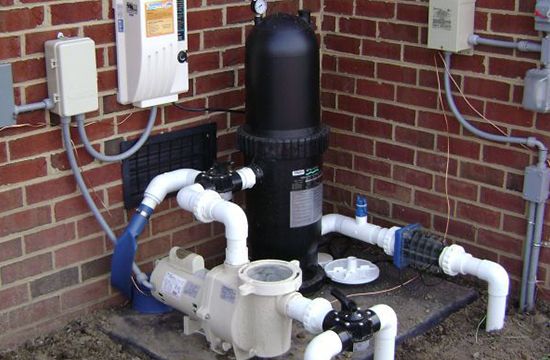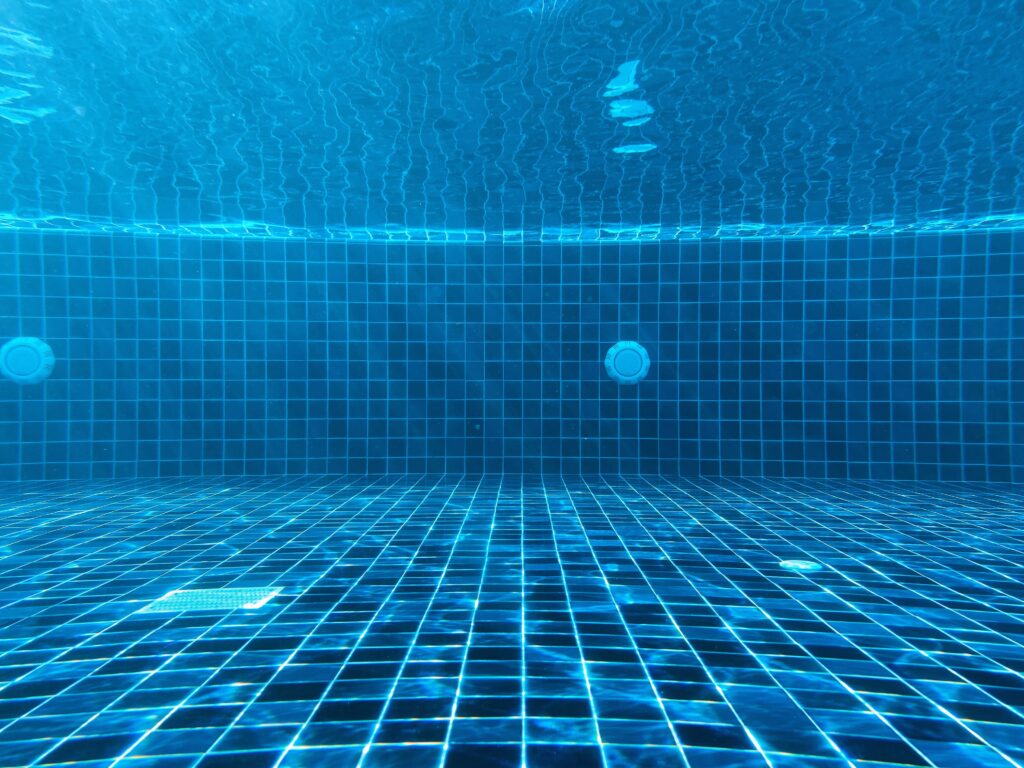How To Tell If You Need Pool Pump Repair or Replacement
Your pool pump is an integral component of your swimming pool’s filtration system. And when problems arise, you may wonder if a pool pump repair or replacement is a better option. But before you rebuild your system or spring for an entirely new pump, read our guide to determine the appropriate solution for your unique situation.
Signs you need a pool pump repair
When your pool pump exhibits performance issues, there’s a good chance that a simple repair can get it back on track. Here are a few indicators that your existing pump just needs a minor fix rather than a complete overhaul:
Stuck or defective bearings
While a loud grinding or screeching sound from your motor can be alarming, it may not signal an irreparable problem. Check the bearings inside the motor of your pool pump and replace any that show significant wear and tear.
The impeller isn’t broken or damaged
The impeller is the part that moves water through the pump, so if it’s working properly, you should be in good shape. If you notice poor suction, low pressure, or inadequate circulation, inspect for signs of an air leak, a clogged filter basket, or a worn seal. If you notice any of these, you may be able to perform a simple pool pump repair.
Pump is less than 5 years old
The average pump will remain operational for eight to 15 years. Beyond this window, components may break down at a rate that’s no longer worth the cost to replace individually.
In most cases, a pool pump that’s less than five years old should be relatively easy and cost-effective to repair. When in doubt, a professional maintenance specialist can help you weigh your options.
Related: 5 Common Pool Pump Problems and How To Solve Them
Signs you need to replace your pool pump
Although some pool pump issues may require a pricey replacement, others can be resolved with a simple repair. Here are several signs that can tell you whether you may only need a pool pump repair:
Strange noises
Unusual sounds coming from your pool pump can indicate a failing motor shaft, air in the system, or problems with your electrical system. This can be especially true if your pump is beginning to age.
When your motor is damaged or has been running with faulty bearings for too long, your motor may be compromised. And if grinding noises are accompanied by a burning smell, you could have an urgent safety issue on your hands.
Pressure issues
A pool pump that’s losing its prime, experiencing air leaks, or operating with a damaged impeller or cracked housing may measure no or low pressure in the filter gauge. Persistent pressure problems that don’t improve after you remove debris from the filter can signal that your pump is no longer operational.
Low water flow
Failing capacitors, a damaged impeller, and motor fatigue can all cause low water flow. As these internal components deteriorate, the lifespan of your pool pump will quickly diminish.
Leaking
Leaks are another bad sign when it comes to pool equipment repair. If you still see water escaping from your pump after addressing seals, this problem could indicate the housing is warped or cracked. When water leaks from the motor side of the pump, your motor is likely already damaged due to internal seal failures.
Read more: Leaking Pools: Where Do Most of the Issues Occur?
How to choose your new pool pump
Once you’ve determined that it’s time to replace your pool pump, you’ll want
to choose a new model that meets your needs. Here are a few things to consider:
Type of pool pump
Single-speed pumps are typically more affordable than variable-speed pool pumps up front, but they can cost you over time. A variable-speed pump will run more quietly, last longer, and automatically adjust the flow level to meet your needs.
Pool size and flow rate
An efficient pool pump should circulate all the water in your pool every eight hours. Here’s a formula to help you calculate the optimal flow rate of your new pump:
Pool volume in gallons ÷ 8 hours ÷ 60 minutes = gallons per minute (GPM)
Energy efficiency
An energy-efficient pump can save pool owners hundreds of dollars each year. Take time to research the best solution for your swimming pool, and opt for an ENERGY STAR® certified model to ensure ongoing savings.
Filter compatibility
Your pool pump and filter work together to keep your pool crystal clear, so it’s essential to choose a model that’s compatible with those components. Check your filter’s flow rate and maximum pressure rating (PSI) before investing in a new pool pump.
Related reading: Comparing Single-Speed vs Variable-Speed Pool Pumps
Get your pool ready for summer with the pros at GPS Pools!
Ready to transform your backyard into the spa-like sanctuary you’ve always dreamed of? At GPS Pools, our expert technicians can assist with every aspect of pool ownership, from design and installation to ongoing care and maintenance.
Whether you’re assessing the lifespan of your pool pump, searching for the perfect heater to keep your pool swimmable year-round, or considering a complete deck remodel, we’re here to help! Explore our extensive services or reach out today to learn how we can help you achieve your goals.


